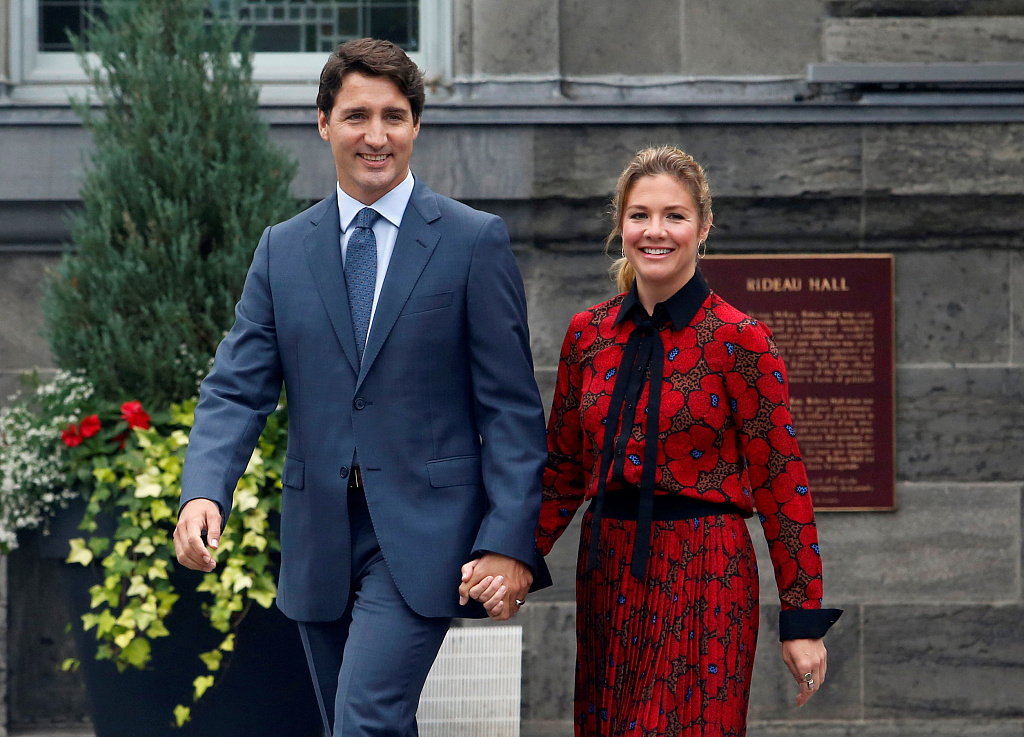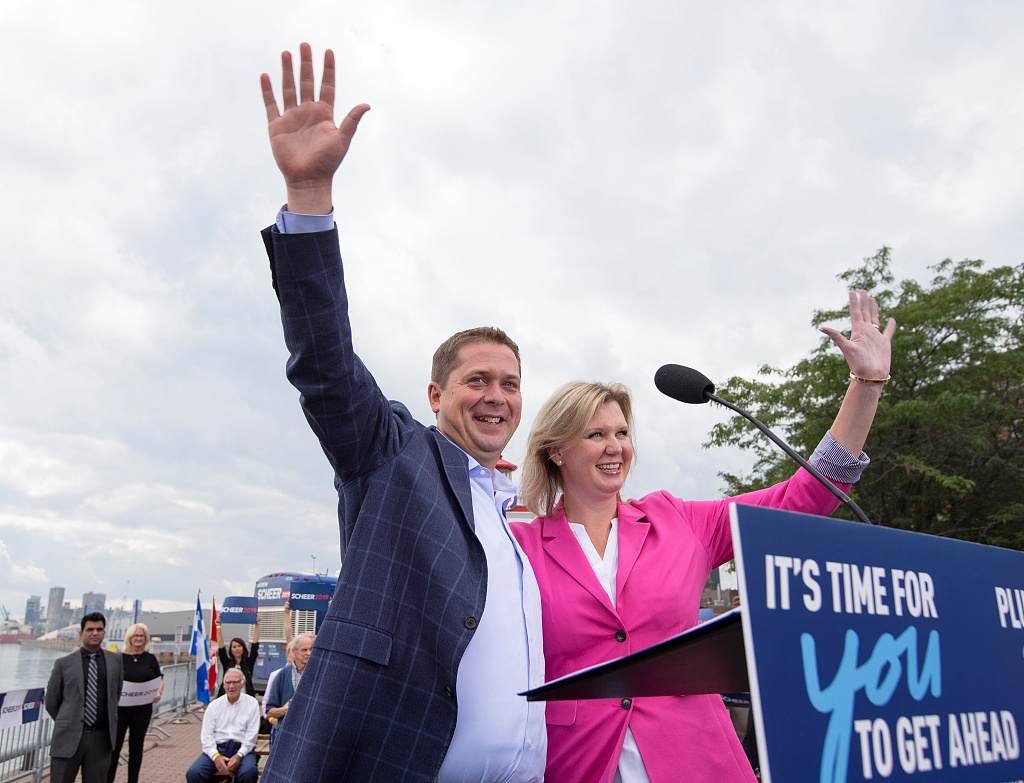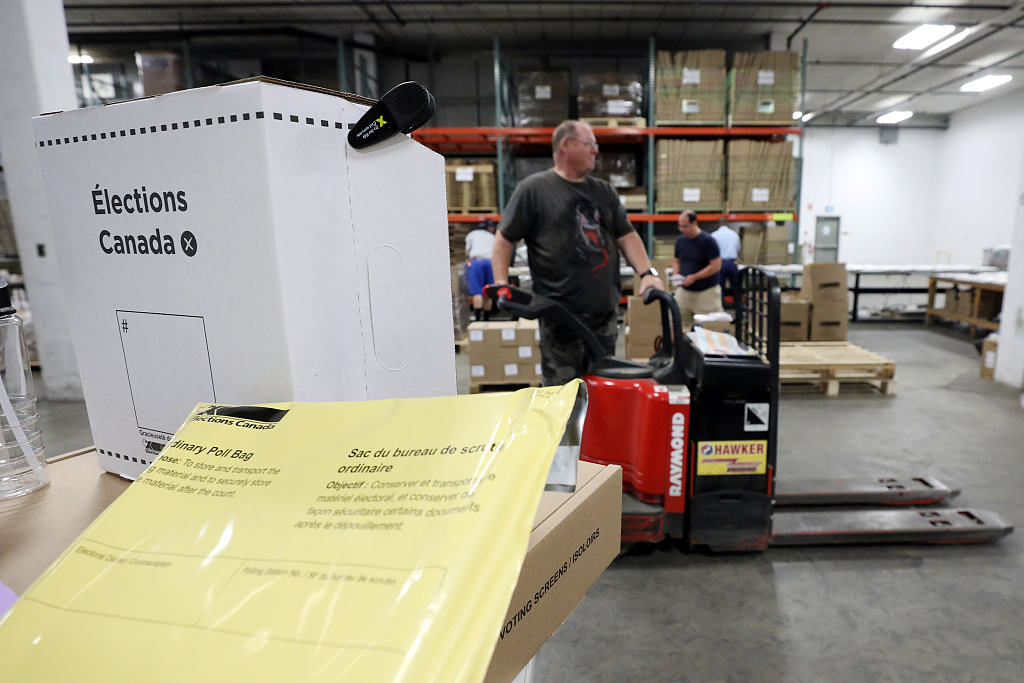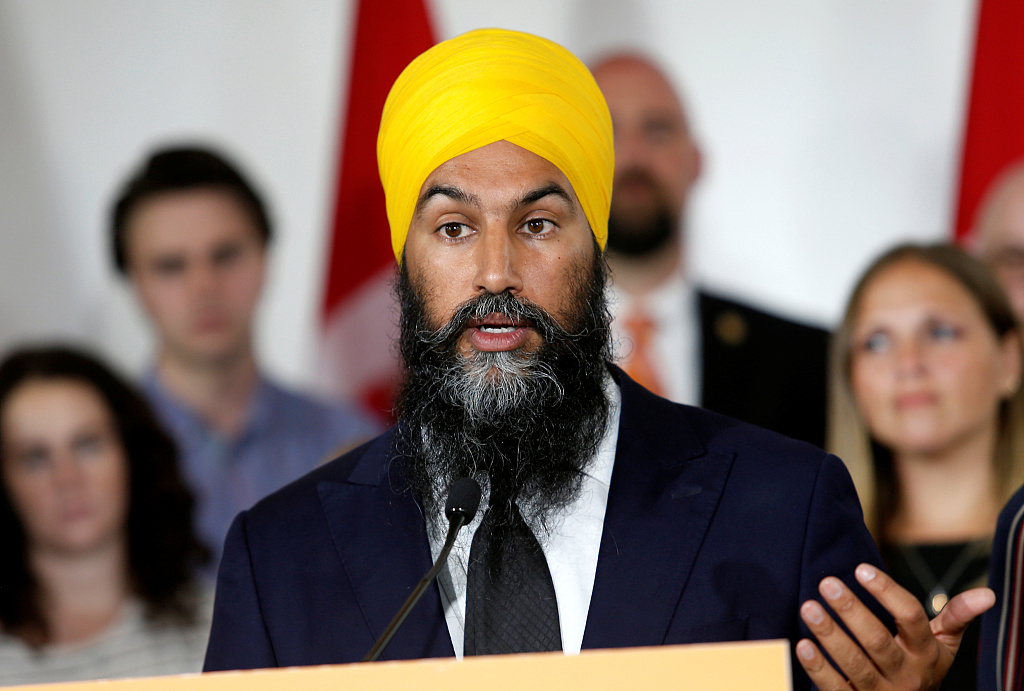Canadian Prime Minister Justin Trudeau kicked off a challenging six-week re-election campaign on Wednesday and immediately came under fire over a nagging ethics scandal and other controversies.
Still golden boy of Canadian politics?
Trudeau, who swept to office in November 2015 promising "sunny ways" and the importance of gender equality and the environment, faces an electorate more focused on the economy and affordability when it votes on October 21.
Canadian Prime Minister Justin Trudeau and his wife Sophie Gregoire Trudeau leave Rideau Hall after asking Governor General Julie Payette to dissolve Parliament, and mark the start of a federal election campaign in Ottawa, Canada, September 11, 2019. (Photos: VCG)
"We have a huge amount of work still to do ... under a Liberal government, Canada will continue to move forward," he told reporters after launching the race.
Polls showed Trudeau, once the youthful golden boy of Canadian politics, neck-and-neck with Conservative Andrew Scheer, who launched his bid for leadership by accusing the Liberal prime minister of lying "to cover up scandals."
"He has lost the moral authority to govern," Scheer said, before boarding his campaign jet.
Last month, a top watchdog ruled the prime minister had breached ethics rules by pressuring the former justice minister to ensure a major construction firm avoid a corruption trial.
Conservative Andrew Scheer and his wife Jill launch his election campaign in Quebec, Canada, September 11, 2019.
The Royal Canadian Mounted Police are probing whether there is enough evidence to lay charges. The Globe and Mail said on Wednesday that Ottawa was limiting what potential witnesses could say.
Trudeau side-stepped repeated questions about the matter on Wednesday, repeating the government's line that witnesses already had plenty of freedom to speak.
Hot issues
Voters will choose all 338 members of the House of Commons, with poll averages showing the Liberals in a dead heat with the Conservatives.
Climate change and affordability are widely expected to be top issues in the election.
Workers prepare materials at the Elections Canada distribution centre ahead of the upcoming federal election in Ottawa, Canada, August 29, 2019.
Throughout his first term, Trudeau cast himself as a champion in the fight against global warming. On Wednesday, he promised "a more ambitious climate plan," while Scheer vowed to roll back a federal carbon levy as his first act in office if elected.
The Canadian economy is going strong even amid global uncertainty. It posted a second-quarter growth of 3.7 percent and almost half a million new jobs have been created in the last year.
But the economic gains have not been widely felt, as Canadians have increasingly expressed concern about rising costs of living.
The Bank of Canada also warned last week that the economy, facing international headwinds, will slow in the second half of the year.
Who's in the running?
Scheer, 40, who took the helm of the right-leaning party in 2017, is Trudeau's main rival.
His popularity surged after the SNC-Lavalin scandal involving Trudeau. But he appears to be struggling in Ontario, Canada's most populous province, where a Progressive Conservative Party of Ontario premier is pushing through unpopular spending cuts.
Another fresh face in federal politics is Jagmeet Singh, the leader of the left-leaning New Democrats (NDP).
He is also the first person of color to have taken the helm of a major federal political party in Canada, BBC reported.
The Bloc Québécois will also be competing for seats against the Liberals, Conservatives and the NDP in Quebec.
According to BBC, Bloc Québécois will only run candidates in that province.
New Democratic Party (NDP) leader Jagmeet Singh launches his election campaign at the Goodwill Centre in Ontario, Canada, September 11, 2019.
The world is watching
Although rivals may dismiss Trudeau's achievements, diplomats in allied countries say his focus on feminism, the environment and the need for multilateral organizations is important. Especially so at a time when populism is on the rise and the United States seems intent on shrinking its global ambitions.
"We are paying very close attention. What will it mean if one of the few remaining progressive leaders is defeated?" said an official at one major Western embassy in Ottawa.
(With input from agencies)






